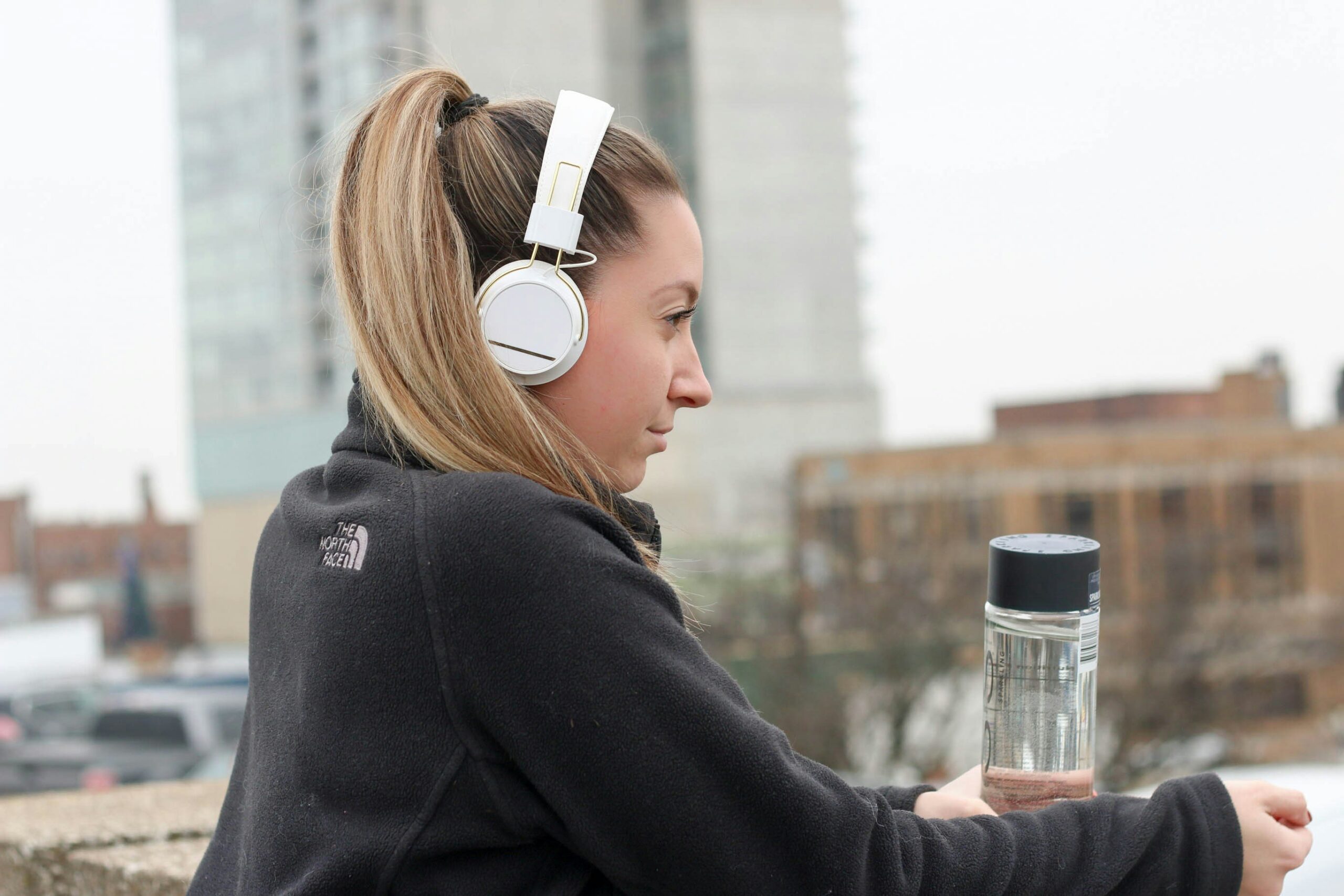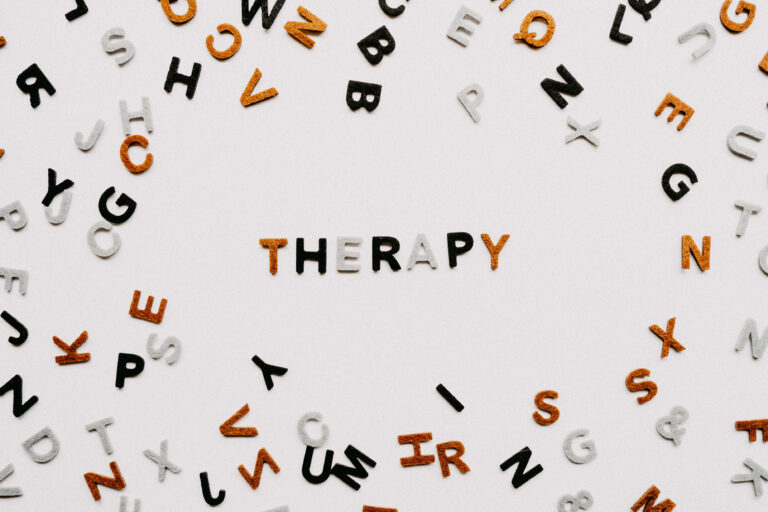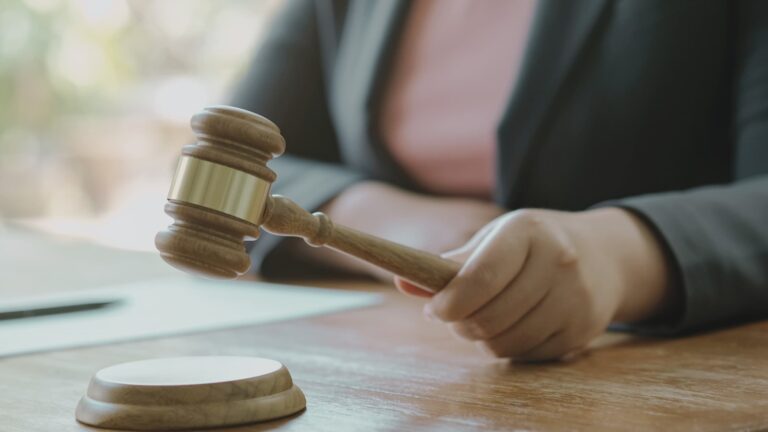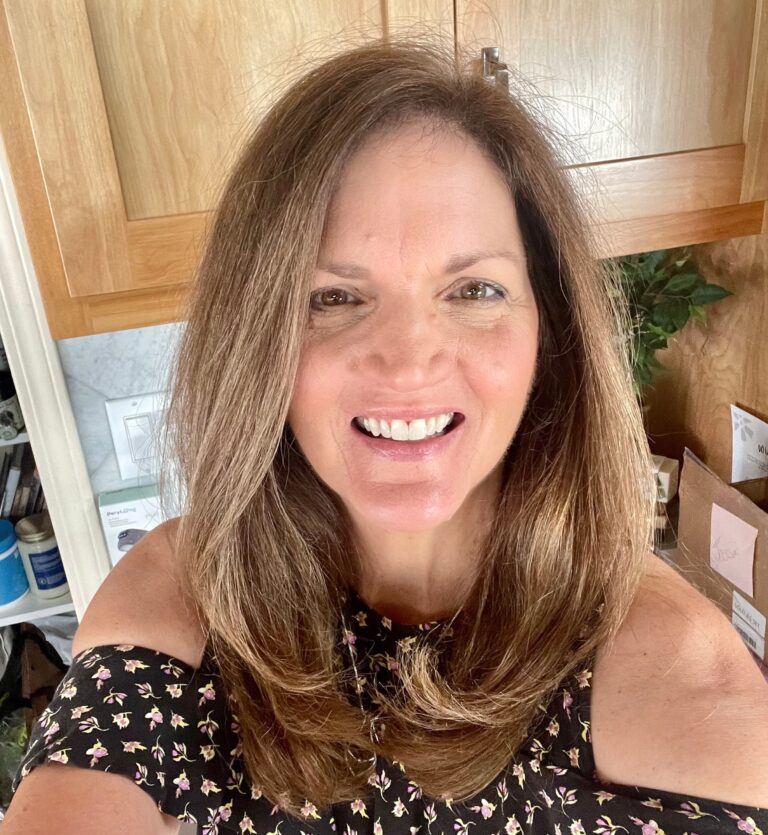Discover Healing: Grief Podcasts for the Widowed Community
When we first became widowed, grief podcasts, or really just podcasts in general, were not on our radar. Even though podcasts have been around since 2004, they were just beginning to take off a decade ago, but the idea of consuming content in that way felt foreign to me. The concept of listening to people talk about various topics while I went about my day was something I hadn’t yet embraced. Back then, my focus was scattered, and grief consumed every aspect of my life.
Podcasts, had I known about them, might have offered a gentler way to absorb my grief and feel connected to others during those crazy waves of emotions. But in those early days of widowhood, the idea of plugging in my headphones and listening to other people’s stories felt out of reach. I was struggling to breathe, both literally and figuratively, and anything beyond surviving each moment seemed like a luxury I couldn’t afford.
Looking back now, I see how much has changed. Podcasts, especially grief and widow-related podcasts, have become a lifeline for those of us navigating the murky waters of loss. They offer a sense of community, understanding, and even humor that can feel like a breath of fresh air in an otherwise suffocating situation.
Whether you’re seeking personal stories, expert advice, or simply a sense of camaraderie, we’ve rounded up our favorite podcasts that provide much-needed support and insight. From humorous takes on widowhood to profound discussions on healing and personal growth, these podcasts offer a range of perspectives that can help you feel less alone and more understood.
Key topics in this episode include:
- Actionable strategies and tools for personal development and healing
- Discussions about grief and mental health struggles
- The power of vulnerability and openness in conversations about loss and widowhood
Join us as we explore the pivotal role of podcasts in offering valuable resources that have the power to transform your grieving process.
Listen to the Full Episode
Links + Resources From This Episode
- Find links to all the episodes mentioned in the transcript below
- Are you searching for emotional support, practical advice, and guidance on navigating widowhood? Join us in the Widow Squad membership
- Follow us on Instagram and subscribe to our YouTube channel
Episode Transcript
Melissa: Let’s talk about podcasts. Were podcasts a thing when you were first widowed?
Kim: You know, actually, now that you’re saying that, I don’t know if they were. I don’t remember listening to podcasts. I know I was trying to read. We talk about reading all the time and not being able to really understand the words on the page. I don’t think I really got into podcasting until much later. So, no. That was not a thing for me at the time.
Melissa; I don’t think podcasts were in their heyday at that time. And there were no widowed podcasts that I knew about.
Kim: I don’t know when it became a thing. I’m not sure what year that kind of changed.
Melissa: What I love about podcasts right now is there are so many, and they’re on so many varied topics. There are quite a few widowed podcasts, the grief podcasts, personal development podcasts. So, you kind of have your choice. But what I love about them is they’re so convenient because you can listen anywhere. In the car, on a walk.
Kim: Oh, I’m always listening on my walks. I sometimes feel like I should just be one with nature on my walks and just not listen to anything. And then I think, what fool, what crazy person would walk five miles without listening to something? I think to myself, I’m just gonna listen to sounds of my walk then I’m like nah. I’m gonna put my podcast on. And learn something and walk and kill two birds with one stone.
Melissa: It feels like you’re accomplishing more, right?
Kim: I accomplish so much. I listen to all the self-development podcasts, and I’m always learning something new. So, I’m walking and getting the exercise, but my mind is blown on some of these episodes where it’s like, holy crap, I didn’t even know that was possible. Whatever the whatever the topic is. I don’t listen to them as much in my car. I probably should. I could do that a little bit more often, but definitely on the walks.
Melissa: Yes. I love podcasts. I love listening on an airplane. It cuts out the noise. And there are so many awesome podcasts out there.
In today’s episode, we want to highlight a few that we really like or that are really helpful for our widowed community. There are some great widowed podcasts.
Grief Podcasts for Widows and Answering Hard Questions
Melissa: The first one I want to touch on is Widow We Do Now. Have you heard of it?
Kim: Oh, yes. Of course.
Melissa: It’s hosted by Anita and Mel. What really struck me first is, like, it’s really funny. It’s a little bit irreverent. You know, you think this is kind of a somber, touchy subject. But they really get into it through humor. And it’s super relatable. They’re widows themselves. They’re young. Anita has kids. Mel is a musician. They talk about their love of cheese.
Kim: It’s not doom and gloom all the time.
Melissa: No. It’s not. They have really great guests. Okay, I was one of the guests, so I have to say they’re great guests! But they interview widowed people who share their stories.
Early on I was just trying to find some stories of people who maybe had gone through a similar situation to me. It’s just really kind of a variety, a mix of personal stories, and then they bring on some experts. They just share other people’s stories. It’s super well rounded, but I just really like there’s humor and hope to a piece of it.
Kim: That’s what’s so important about those topics because you can’t just talk about grief all day long, 24/7. I mean, it is a big, big part of our lives, obviously. But there are other aspects too. And that’s what I love about those kinds of podcasts that don’t take the one subject and just redo it over and over and over again. There are lots of topics we can talk about that tie into widowhood, that are not just about grief or mourning or sadness all the time. I like that they have that little bit of a lighthearted element to their podcast. If we didn’t have laughter and humor, we wouldn’t get through life. I mean, you have to be able to laugh at the absurdity of the stuff that we have to go through.
Melissa: I know because it’s absurd. It’s absolutely absurd and unbelievable. I love their podcast and I love just their messaging around it. I have to tell this little story about Anita, and I think it’s on their website too. So, she’s got 4 kids. And she’s snarky and just puts it out there, like, this whole thing sucks. We all know it sucks. So, they have this line of merchandise, like t-shirts and mugs and stuff. And there’s the shirt that they created, and it says, “Be nice. My husband is dead.” It’s a legit t-shirt.
The story behind it is that she’s got four kids, and she’s trying to get these kids through airport security on a trip and she’s wearing this t-shirt. So can you imagine, it’d be like, yes, everybody part ways. She’s coming through with her kiddos. I just thought that was such a great way to broach the subject. My husband’s dead. I have four kids. Trying to get them through airport security. I’m in hell right now.
Kim: Right. And besides that, the kids probably aren’t cooperating, and you’ve got four kids going off in four different directions, not listening or doing what is asked of them. Their dad died. So, yes. I mean, that would be a great a great t-shirt to wear on multiple occasions.
Melissa: So that is kind of the essence. That little story gives the essence of the Widow We Do Now podcast hosted by Mel Shore and Anita Coyle. I highly recommend giving it a try if you haven’t started listening to it already.
Do you have any podcasts you really love, you want to share with the audience?
Kim: Some of my choices today are not widow specific, but they’re more self-development, mental-health specific. And some are grief related, but not just widows and widowers in general.
One that I listen to that is fascinating to me because I have a really hard time understanding how this woman can do what she does is called At Home with Byron Katie.
Now, if you’ve never heard of Byron Katie, she has this technique or this procedure that she calls “the work,” and this is how to get the thoughts that are in your head changed around to the positive side from the negative side. That’s a very simplistic definition because it’s much more than that.
Melissa: Doesn’t she ask just like four questions?
Kim: Yes. These four questions are things that you can ask yourself. We like to rationalize things in our minds, right? So on this podcast she takes callers and they come with her with this specific issue. And she does “the work” with them or asks them the four questions on her podcast. And it helps them change their thinking, or those thought patterns around to see where they may be, well not may be, but usually are, contributing to their own suffering.
The fascinating part is we are so entrenched in our own beliefs about how things are going in our lives, it’s almost impossible to see how we could potentially change things without somebody helping us or without these four questions like she does on this podcast. Right? So, she shows people what their stress and suffering is doing to them and that it doesn’t come from any circumstance or anything that happened outside of them. It’s all internal.
It’s fascinating stuff. I mean, she’s got a ton of podcasts. I think she does live sessions, if I’m not mistaken, three times a week. So, you could listen live. And I don’t know how you would call into her, but I’m sure it’s on her website.
But anyway, so she gets these people on, and they say, “my husband doesn’t love me” or “my dad hates me” or “my mom did this to me” or “my boss did that to me.” And no matter what the issue is, she will start asking these four questions.
The first question is, no matter the topic is, “is it true?” Well, of course you think it’s true. Why would someone be calling in and talking about it if it’s not true? But the question is literally, “is it true” or not?
If it’s a belief, it’s not a fact, so it can’t be measured. It’s maybe not true. So that’s the first question, “is it true?”
The second question is, “can you absolutely know it’s true?” She keeps pounding. Like, these people think their thoughts are real, and they’re facts, and they’re true. She asks, “can you say that it’s absolutely true?” So, we’re going deeper now. It’s sometimes hard to listen to some of these episodes because these people, like I said, are so entrenched in their beliefs, and it’s hard to get them out of that belief. But she’s a master. She’s a master at this until you get to the end of the podcast. You’re like, how did she just do that? And then you start questioning your own thoughts in your own mind. Right?
The third question is about how you react. The question is, “what happens when you believe that thought?” What things do you do or say or whatever when you think that thought? These are physical and emotional reactions that arise from believing in those particular thoughts.
And then the fourth question, which is probably the most important one is, “who would you be without that thought?” When we are entrenched in our thoughts and beliefs, and we think bad things happen to us for a reason, and it’s circumstances outside of us that are causing our angst, who would you be without this thought? If you really stop and consider that, and you can journal on these, you can download free workbook pages from her website, that’s a really hard question to answer sometimes. Who would you be without this thought? If that’s what’s been your emotional makeup, your mental makeup for days, months, years, whatever, it’s hard to move out of that.
I try to do the work by myself, but it’s not that easy because my brain wants to tell me, well, you’re right. You know, this happened and that happened. When you really go through these thoughts now and really dig deeper, then you realize where you’re definitely contributing to your own suffering.
Once you go through all the questions, then she comes back with a turnaround. At the end of all this, the turnaround is where you consider the opposite of the original thought and then explore different perspectives and insights into that.
You go through all this work, and then you think the opposite thought. At the end, you’re like, I feel like I’ve been hit by a Mack truck. I wasn’t even in the hot seat, just listening. But it’s all the things that are going through your head about the thoughts that you have for yourself, too.
It’s absolutely fascinating. That’s all I can say. I hope I’ve explained this well enough, but she’s a master at getting to the core of what their anguish is and why they’re suffering.
Melissa: Because if you’re a widowed person, are these some of the stories that you’re telling yourself? Like, I’m always gonna feel this way. I’m always gonna feel bad and nothing ever works out for me. So that very first question, is it true? And you’re like, well, it’s true. I’m feeling it. But can everybody in the room agree on it? Well, no.
So, I could see moving through those questions and then also listening on the podcast and having her actually do it would be super helpful, in kind of doing your own practice, if you want to call it practice.
Kim: It is practice. It is absolutely a practice. You cannot sit down with this worksheet and go, okay, I did the work and answered the questions, boom, I’m done. Oh, no. This is a lifelong practice. And she comes from, if you were to go look at her background and read about her struggles with depression and stuff, she comes from that place where everything was bad, and nothing was ever gonna be good again and life sucked. And she came out of that and developed this work.
So, you kind of have to sometimes be in a good headspace to get into those episodes.
Melissa: Well, I can see it. It would be kind of intense.
Kim: It’s pretty intense, but fascinating and then completely eye opening to where you’re like, oh, crap. I’m kind of doing this to myself. I’m kind of responsible for this. It’s really eye opening. I highly recommend it. I don’t really have a favorite episode per se because they’re all very compelling. I am more drawn to the ones about negative self-talk and self-sabotage.
Melissa, what’s another podcast that you would want to share?
Podcasts for Widowed Parents and Managing Life’s Challenges
Melissa: This is the podcast that both you and I wish we had around when we were solo parenting because every solo only parent should tune into called The Widowed Parent podcast.
Kim: Yes.
Melissa: You and I both had challenging times.
Kim: Challenging with air quotes. What a nice word. More like soul- sucking.
Melissa: Jenny Lisk created The Widowed Parent podcast because she’s a widow and solo parent as well. She brings on folks who are solo parenting, kids whose parents died when they were young who are now adults, and they’re talking about their experience as kids. She brings in grief experts and just she gives a solo parent pretty much everything that they need.
Both you and I have been interviewed on this podcast, and we’ve shared our experiences.
Kim: Yes. We have. The beauty of it is when you hear an episode where a parent had a challenging kid and you say, okay, that sounds like me. Or if you heard an episode maybe, where on the flip side kids are trying to be so good they never get in trouble. And they’re like brainiacs who have to ace every test. That’s the other extreme, right? So that’s not healthy either.
You can find similarities in a lot of these episodes depending on what challenges you have with your kids. But I love the fact that these children whose parents died when they were young are now talking about their experience as adults. I think that’s a fascinating perspective too.
Melissa: I mean, whatever situation you’re in, you could probably find an episode on it because I think she’s close to 200 or maybe more episodes right now. It could be anything from little kids, the teenage years, adult children. Because parenting never stops.
Kim: It never stops.
Melissa: You’re always going to be a parent whether you may be actively doing it or not. But it’s a great podcast. I go back and listen to it. It’s super helpful. I recommend it to any solo parent.
Kim: Yes. We definitely recommend it. And we talked about her book that you and I wrote excerpts for. On our podcast about the books that we recommend, episode 53, Jenny’s book, Widowed Parents Unite, is one of our recommendations. Anytime we come across anything that can help the solo parent, we’re all about sharing it.
Melissa: Yes. So solo parents, and even if you’re not a solo parent, it’s really great information and great resources. She’s really done a great job. Again, I wish this was around when I was a new solo parent.
So, do you have another one on your list, Kim?
Kim: I have some more self-development, mental health podcasts because I’m a self-help junkie. And when I’m walking, I’d like to figure out how I can become more self-actualized. So, I’m always listening to whatever I can find that has to do with self-development.
One of the other podcasts I like is called On Purpose by Jay Shetty. He has a really interesting kind of background because he used to be a monk. I find that pretty interesting that he went from being a monk to working in corporate America to now being a podcast host and a mental health expert. I think he’s a life coach. I think he has life coach certification programs on his website, too.
But anyway, this On Purpose podcast just basically talks to people about daily life challenges. So very relatable topics. I don’t even know how many episodes he has, quite a few, but a lot of relatable topics about self-improvement and personal growth or mental health challenges. I mean, mindfulness is a big one for him because he used to be a monk. He’s kind of taking the principles he learned there and just regular life issues and merging them.
Melissa: Who doesn’t need that?
Kim: Who doesn’t need that? Right? But they’re just kind of meaningful conversations and practical life skills. And this is what I’m always searching for…the practical skills. What can I do to make things easier for me? Why am I making it harder for myself when I don’t have to? This is where these kinds of personal development podcasts really pique my interest because I could hear 12 episodes of the same topic, but you’re always gonna learn something new from a different perspective, from somebody different who’s hosting it or somebody different who is the guest on it. I never get bored with the topics. I never really go like, oh, I’ve already heard that one before.
Even if you’ve heard the topic, you’re still getting a new perspective about it. So, there’s lots of compassion too. Just a lot of compassion and empathy. And again, just calming and very serene.
I don’t really have any specific episodes I would recommend because there’s so many. But again, I gravitate towards self-sabotage or letting go of expectations. My expectations are super-duper high, and you can’t live in a world where expectations are super-duper high.
I’m always trying to figure out how I can take that down a notch. Haven’t figured it out quite yet. I’m still learning. But those are my those are my go-to episodes.
Melissa: Well, it’s great because you and I are kind of tools and strategies gals. We gravitate towards giving me the homework or giving me an actionable thing to do.
I’ve seen him before, but I’ve never listened to that podcast before. So, I’m gonna give it a shot.
Kim: Give it a shot. There’s lots of different topics. Something for everyone.
So, Melissa, what else do you have?
Powerful Podcasts on Grief and Personal Growth
Melissa: Well, this is not a widow podcast per se, but it’s about grief. Do you know who Anderson Cooper is? His podcast is called All There Is, and it’s a really touching podcast because he gets super personal. It’s about his personal experiences.
He talks about the death of his father when he was young, the death of his brother, which I believe he witnessed, and then his mom. One of the very first episodes, he’s recording himself going through his mom’s belongings and boxes, and he’s breaking down and really showing his grief.
He’s a celebrity who’s talking about grief, which everybody experiences, but nobody wants to talk about. He chats with celebrities and real people. It’s just really about processing. He processes his feelings for us. And so we’re like, oh, okay. Well, I guess we can do that too.
It just breaks the ice on talking about grief and death and loss because that’s what everybody tends to shy away from that. He had a famous mother. You know, they’re in the spotlight. So, for someone like that to come out and be like, we’re gonna be vulnerable here, people is pretty amazing. I just can’t say enough good things about it.
There’s one episode that really got to me. He interviews celebrities sometimes, and one of them was Stephen Colbert. Stephen had lost his dad and his brother, or maybe a couple brothers, in a plane crash when Steven was young. He just talks about how that experience affected him and still affects him and his views on grief.
I’m getting, like all of a sudden, I’m getting goosebumps. There’s one thing that he says in there that just blew me away. It’s like, yes, that’s grief. That is grief, and that’s how we process it, and that’s how we move forward. He said, like, two sentences, and I’m like, that is the most profound thing I’ve ever heard. So, I guess that’s a teaser to go listen to the Colbert episode. I listened to it last year and I’m like, wow. I wish I had known before how Steven processed his grief and how he’s moving forward.
Kim: It’s an interesting perspective because men are not always as emotionally in touch with what they’re feeling. The fact that these two men are laying it all out there for everybody is super impactful because you don’t get that very often from the male side. I love that they give everybody else permission, men and women, but men especially, to feel your feelings too. Grief affects all of us. You’re gonna feel it one way or another at some point in your life. So having vulnerability is key.
That’s amazing.
Melissa: Yes. So, All There Is with Anderson Cooper. If you’re gonna only listen to one episode, listen to the Stephen Colbert episode, and then see what you think.
Kim: Well, I think I’m gonna listen to it on my walk today because I’m going out this afternoon. So now that you mentioned it, I might put that on my podcast list today.
Melissa: Let me know what you think.
So, do you have any others on your list, Kim?
Kim: I do. I have another one. This is one of my absolute favorites. I listen to it all the time, and it’s called The School of Greatness by Lewis Howes. And he’s a former athlete who I think had an injury. I think it was in football. He was going to be a football player, and he couldn’t be a football player because of an injury. So anyway, he got into podcasting. Long story, you can read about his bio on his web site, but he interviews all kinds of interesting people.
It’s, again, self-development and mental health related. I love the people that he interviews. I love his guests. He’s done thousands of interviews.
His episodes are listed chronologically on his website. You can see every single episode he’s ever done on his website. I mean, the wealth of knowledge in these podcasts is unbelievable. But these are what I listen to mostly on my walks. Especially one route that I take is a little over an hour, start to finish. I know that if I’m going on that route, I can listen to a School of Greatness podcast episode because that’ll get me through the whole walk.
I’ve subscribed for years. I’ve listened to it for years. Again, the wealth of knowledge is crazy. He interviews Tony Robbins, and, and I’m gonna blank on all these other famous people that he interviews, but Tony’s been on there a couple of times. Robert Greene, the prolific author, and all these people. But my favorite episodes are when he interviews Dr. Joe Dispenza.
Do you know Joe Dispenza?
Melissa: Oh, yes.
Kim: Okay. He’s a researcher and an author. Popular guy. If you haven’t heard about him, I would say look up his stuff too. But he studies how we can intentionally change our brain chemistry. So, I’m like, okay, Dr. Joe, show me how. Again, self-sabotage, let go of limiting beliefs, all the things.
Joe Dispenza goes way beyond what I could even possibly describe to you in this podcast. I’m not even gonna try. But he is all about changing our brain chemistry and developing a healthier mind and teaching our bodies how to heal itself. This is just a little taste of what Dr. Joe talks about. But he’s been on the School of Greatness several times. Actually, I think he was on Jay Shetty’s podcast a couple of times.
I am always in awe after listening to some of those. Like, holy crap, I am way more powerful than I ever imagined. So really, it’s getting, again, those messages downloaded to you through your earphones, right into your mind that you can change your thoughts, you can change your life, you can change whatever’s not working in your world by using these practical tools that you learn on these podcasts. I’m obsessed. And this is, again, one of my favorites. I probably listen to more episodes on that podcast, The School of Greatness, than anything else. And Lewis Howes, again, he’s a vulnerable male.
He’ll tell you like it is. He’ll tell you how he’s feeling and how he got to where he is and the struggles that he’s had. He’s written books. It’s all just very relatable, but a lot of just fascinating topics and fascinating guests. Have you ever heard of that podcast or listened to any of those?
Melissa: I’ve heard of Dr. Joe Dispenza. Probably not the podcast. I’m definitely gonna give it a listen. I know that Dr. Joe Dispenza does some breath work stuff, too.
Kim: He does so many things. Like I said, we couldn’t even touch on it right now. But I’ve got his books. I mean, it’s fascinating stuff. And some of it’s really clinical, and some of it can get really hard to understand. But when he’s talking about just really changing your thoughts, and just the way he says it, it’s just so matter of fact. Like, this is how you do it. And this is what you can expect. And this is what you can change.
I can listen to this kind of a topic over and over again because, again, it still doesn’t always sink in a 100%, but I’m always very motivated after I listen to a School of Greatness podcast to go do something. I think that’s how he ends it with, now go make something big or something like that. It’s like, okay, I’m gonna go do that.
So good. It’s really good.
Melissa: Alright. For somebody who likes homework, the School of Greatness speaks to me.
Kim: What else do you have on your list?
Effective Strategies for Managing Grief and Stress
Melissa: I have one more. This is not grief related. It’s not widow related, but I think it’s really helpful if you’re dealing with grief and loss. It’s called Ten Percent Happier by Dan Harris. And I was exposed to this actually through his book. I read his book first, and then I think he did a podcast a couple of years later. But I read his book called Ten Percent Happier.
He’s an ABC News correspondent. He was live on air, and he had a panic attack on air that was televised live. And you can look it up. You can Google it if that’s something you want to see. I was attracted to this book and to Dan Harris because I had two panic attacks. Never in my life had I ever had a panic attack. This was a few years ago because I was grieving, working, parenting, spinning all the plates, and they were starting to crash down.
I just was not able to keep it together. So, my body reacted by having a panic attack. And it was completely, like, what is happening? Take me to the emergency room. I don’t know what’s happening to me. Of course, I go to all the doctors, and, you know, I’m talking to everybody. And I’m doing my own research, my own homework, and googling. I came across this book, Ten Percent Happier, and then I found his podcast. It’s all based around panic attacks where you’re so stressed, your body, your mind, everything is just shutting down.
It’s really, really scary for me or anybody who has panic attacks. It’s very scary because they come out of nowhere. Reading through this book, listening to the podcast, it’s all around mindfulness and, really calming and soothing yourself. He brings on experts. I think he just did one recently where he meditated live. But just really calming your brain, calming yourself, self-soothing, all the tools, all the experts, everything that you need is in this podcast. And also, the book.
I would recommend the book too if that’s something that is happening in your life. But it was just a way for me to calm my brain, calm my body, and give me those tools.
I haven’t had one in several years because I think I’ve been able to manage and really understand what’s happening. Like, I can’t keep all these plates spinning. I can’t do everything when I’m running myself into the ground. So that was a big wake up call. And the book and the podcast are super, super helpful for me. I would highly recommend that to anybody. It’s just a way to manage your thoughts, manage yourself, manage your stress level.
Kim: 10% happier? Is that like a reference to you just have to do a few small things or take a few small steps in order to be happier or to reduce your stress? Not like it’s this big thing you have to do and it’s overwhelming that you’re not able to accomplish. Is that where the 10% kind of comes in?
Melissa: Well, I think that’s where it comes from. Or just, you know, what if you were 10% happier? What would that be like?
Like, you don’t have to be 100% happy all the time, you know, because it’s just not realistic. But, you know, just in little increments. You know, 10%.
Kim: I like that. I like that idea.
Melissa: It’s really good. Do you have any more on your list?
Kim: I have one more on my list, and this is grief related and is sort of mental health related too. It’s by CJ Infantino and his cousin, Ashley, and their podcast is called The Day After. It’s for grief in general, not geared to widows or widowers specifically, even though CJ is a widower. His wife died of breast cancer when she was in her early 30s, and they had three kids who were young when his wife died. And then Ashley’s mom died of breast cancer when she was nine.
So, they’re cousins and they decided to start this podcast and this kind of movement to bring grief into the forefront because, again, their experience like ours in the beginning was nobody wants to talk about it. They couldn’t find the resources that they wanted or that they needed. They decided to make this topic less hush-hush and just bring it out to the forefront. So, it’s called The Day After, and it’s kind of like our podcast, where they talk about different topics revolving around grief.
I like their openness and their vulnerability. They’re very open about their struggles. CJ has been open about his mental health struggles. He was actually on our podcast. I interviewed him on episode 51, and we talked about his widower journey. And then I’ve been on their podcast. So, I was actually on their podcast twice. And the first time I talked about my widowhood journey and, you know, what happened when my husband died, and my kids were little. And the second time I went on, I talked more about the Widow squad. They were interested in hearing more about what we’re doing and how we’re helping others in our similar situations.
You know, how we’ve taken our grief experiences and turned that into service for others. So, the second time I went on their podcast, that’s what I talked about.
But again, it’s just down to earth people talking about grief in general and funny banter because they’re cousins, and just super nice people. I just really like them, and I think they’re wonderful humans.
So that’s called The Day After. I would definitely recommend their podcast if you’re looking for some interesting topics and that revolve around grief.
Melissa: It’s nice to hear from a male, like we were saying, a male perspective on widowhood.
Kim: Absolutely. That’s why we wanted to talk to him on our podcast. We don’t get as many men. You know we’re obviously very heavily female viewpoint related, but it’s nice to hear that perspective every once in a while. It’s very interesting.
Do you have anything else, Melissa?
Wrap Up
Melissa: I do. Okay. One last podcast.
The podcast that you’re listening to right now! The Widow Squad podcast. You’re clearly listening to this podcast right now, listeners. But if you feel like having it automatically downloaded, you can just subscribe to it on Apple Podcasts and make it easy. It’ll automatically download all the episodes.
I know on Spotify if you hit follow, all our episodes will pull up.
So if you haven’t subscribed or followed our podcast yet, we highly recommend that you do that. Also, if you ever have any suggestions on topics that you don’t feel like we’re covering or you’d like to hear more about, send us an email at hello [@] widowsquad.com. We’d love to hear from you.
I was out looking at some of our reviews on Apple, and I just wanted to read a review from one of our listeners. She said, “I’ve listened to other podcasts on grief, but this one speaks directly to widows. I’ve been a widow for a year now and don’t feel like anyone understands me. But when I listen, I feel like I’m sitting in a room talking to friends. Thank you.”
So that’s what we want. It’s like you’re just sitting in a room talking to some friends about the worst thing that ever happened to you.
We just hope we’re making it a little easy for you.







